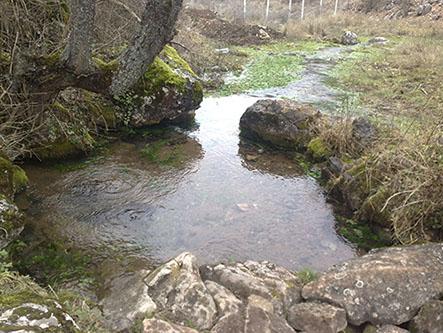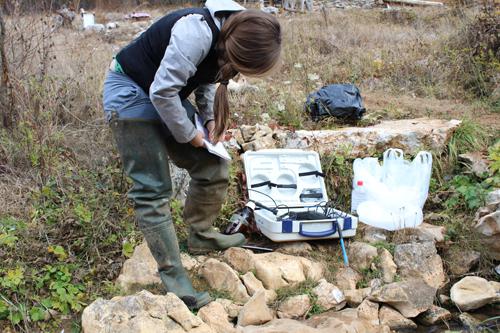Jelena Stanković
This project aims to assess the current status of water quality and structure of macroinvertebrate community in mountain springs and downstream fish farming influence. By sampling macroinvertebrate community, as good indicator of environmental quality, at the previously defined sampling sites we will estimate influence of the target point source pollution on water quality, macroinvertebrate diversity and community structure. Also, we plan to establish long-term monitoring and to create data base of springs in Serbia. By interviewing and promoting this project we aim to raise human awareness about the importance of springs and their conservation. Through education lections and field training we hope to point out ecological way of thinking and importance of conservation of nature and to emphasize the importance of combining aquaculture with ecology, in terms of using ecological instead of artificial fish food in order to decrease the level of water pollution.

Spring.
Springs are unique ecosystems and very interesting habitats, not only for ecological and biogeographical studies, but also for their characteristic fauna. Traditionally, they are considered as clean and pristine environments with high biological integrity.

Collecting data.
The issue of water availability and quality has become one of the most important global problems since human population increase and technological development resulted in the increasing demand for water supplies. Thus, it is important to estimate fish farming influence on the water quality as one of the most common point source pollution on lotic systems, by assessing macroinvertebrate community in both springs and sampling points downstream – influenced by local fish farms.
Within this project we aim to define the current ecological status of selected mountain springs with a special attention on the influence of trout farming on water quality and aquatic macroinvertebrate community within the investigated water sources. Moreover, the main goal is to establish a long-term monitoring system of these fragile habitats. We plan to interview local community about their knowledge on the importance of springs, their conservation, and anthropogenic factors they are affected by.
The fieldwork campaign will start in January when first field trip will be conducted on the Suva Planina Mt. and the Stara Planina Mt. Before this activity, we will prepare promotion material, necessary equipment and invite volunteers to join us by presenting them the project and planed actions. The frequency of field trips will be seasonally, in every three months.
Each field trip is followed by laboratory work. We will sort, count and identify individuals to the lowest possible taxonomic level using the appropriate keys for identification. Based on the obtained results, we will estimate and compare water quality parameters at sampling sites in the springs with those situated downstream fish farming effluents.
For raising awareness we will consider interviewing, lecturing and promotion. We will do interviewing of local inhabitants. Human awareness about the importance of preservation of clean water and pristine habitats is strongly needed.